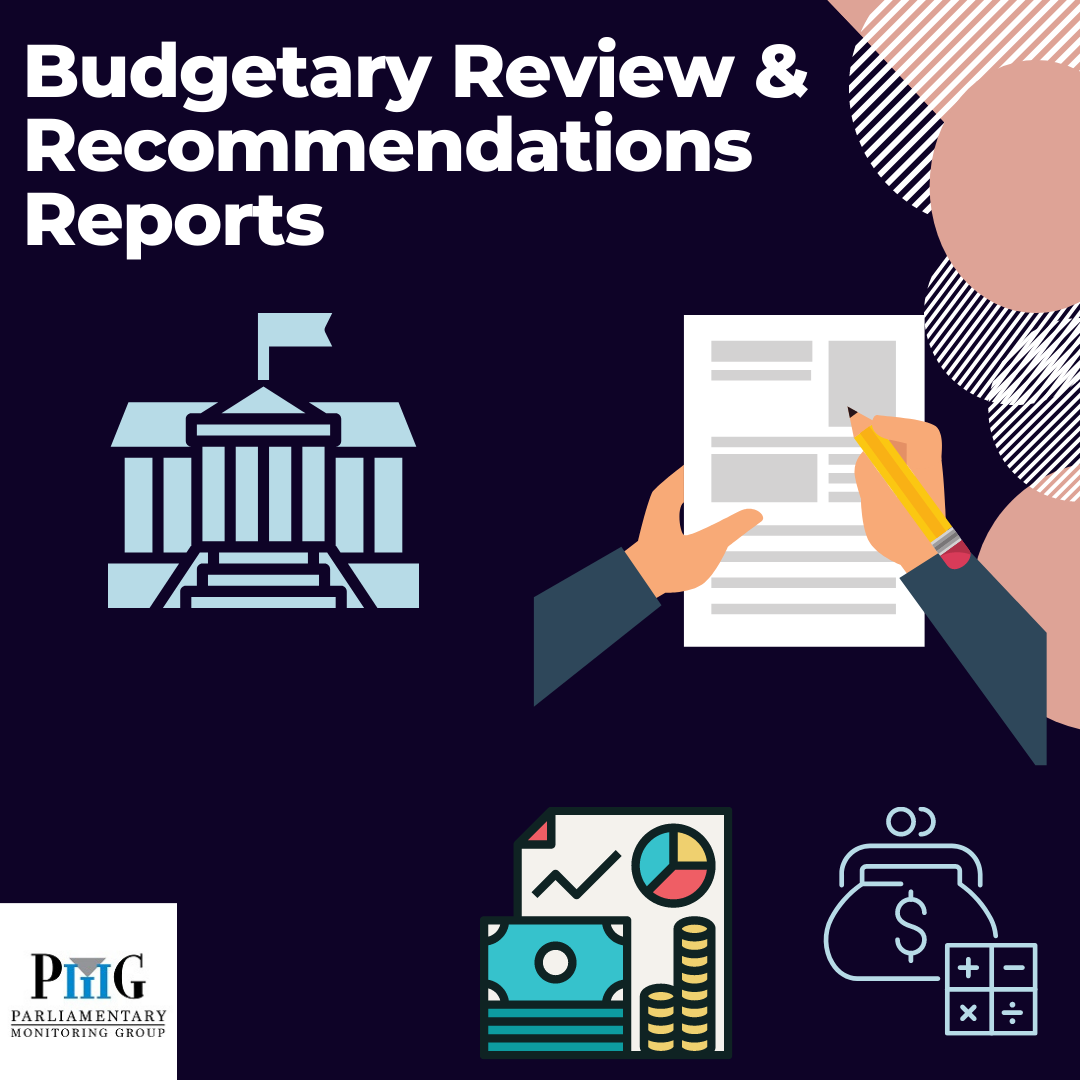Explainer: Budgetary Review and Recommendations Reports

Parliament has a fundamental role in authorising budget decisions and in holding government to account. Consistent with this, parliamentary committees get to engage with the budget process at all key stages of the budget cycle, both ex ante and ex post as appropriate.
Budgetary Review and Recommendations Reports (BRRRs) are a critical part of Parliament’s engagement with the budget.
Process issues
Section 5 of the Money Bills Amendment Procedure and Related Matters Act sets out a procedure to be followed prior to the introduction of the national budget by the National Assembly, through its committees, for assessing the performance of each national department. This procedure provides for committees to prepare BRR reports annually, which must provide: an assessment of departments’ service delivery performance given available resources; an assessment of the effectiveness and efficiency of the departments’ use and forward allocation of available resources; and may include recommendations on the forward use of resources.
Given their involvement in the legislative, budget and in-year monitoring processes, portfolio committees are ideally placed to exercise oversight of the service delivery performance of departments and public entities that fall within the same portfolios. Indeed portfolio committees’ role in overseeing annual reports is crucial to closing the accountability loop of planning, budgeting, implementation, reporting, auditing and, finally, oversight. In essence, the portfolio committees should exercise oversight as to whether departments, public entities and constitutional institutions have delivered on the service delivery promises they made in their strategic plans and which the legislature agreed to finance by appropriating public funds through the Budget.
National Treasury: Guideline for legislative oversight through annual report, 2005
Following their tabling in the National Assembly, the BRRRs are submitted to the Minister of Finance and relevant Minister responsible for the portfolio/department. Upon delivery of the main Budget early next year, the Minister of Finance would then be required to explain how the budget gives effect to these recommendations from Parliament, or why they have not been taken into account.
In formulating BRR reports, committees analyse departmental Annual Reports and Financial Statements; consider reports from the Standing Committee on Public Accounts (SCOPA) to identify, if any, existence of fruitless, wasteful, irregular or unauthorised expenditures, and over-spending. However, granted, SCOPA does not get to report on all annual reports for the BRR reports process owing to its workload. Other useful sources of information would include: the State of the Nation Address; Reports of the Auditor-General South Africa; recommendations of the Financial and Fiscal Commission; fact-finding (or oversight) reports; past BRRRs; reports on Budget Votes.
Conclusion
In all this, committees may invite inputs and/or evidence from departments and other stakeholders. Based on their observations in relation to the achievement of departmental strategic priorities and objectives, and the use of resources, committee recommendations are expected to conform to the principles of separation of powers and cooperative governance as espoused in the Constitution. Also, of equal importance is that the recommendations are clear about: who they are directed to; what action is expected, and that they are practical and with realistic timeframes.
About this blog

"That week in Parliament" is a series of blog posts in which the important Parliamentary events of the week are discussed.
We host the latest posts of this blog, written by People's Assembly. You can find more on PA's blog.
About this blog

"That week in Parliament" is a series of blog posts in which the important Parliamentary events of the week are discussed.
We host the latest posts of this blog, written by People's Assembly. You can find more on PA's blog.
